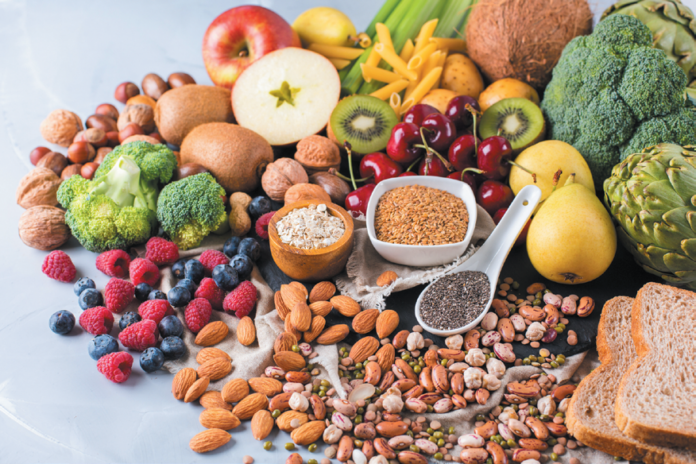A. Nicola McKeown, PhD, an associate professor at the Friedman School, answers: “Dietary fiber has a role in helping to lower blood glucose and cholesterol levels, reduce calorie intake, and increase the frequency of bowel movements. It also supports a healthy gut microbiome. It is recommended that adults consume between 25 and 30 grams of dietary fiber a day. The average American currently gets about half that amount.
“Fruits, vegetables, nuts/seeds, legumes, and whole grains are excellent sources of intrinsic (natural and intact) fiber. The Dietary Fiber listed on Nutrition Facts labels represents a total of three categories of fibers: intrinsic; isolated/added; and synthetic. Not all added fibers have the same health benefits as fibers found naturally in plant foods. To be included as Dietary Fiber on food labels, isolated and synthetic fibers must have demonstrated a beneficial physiological effect on human health. Currently, based on scientific evidence, the FDA allows beta-glucan soluble fiber, psyllium husk, cellulose, guar gum, pectin, locust bean gum, and hydroxypropylmethylcellulose. Inulin, alginate, high amylose starch, and seven others are under consideration to be added to that list. The names of any added fibers in a food must be listed in the ingredient list. Look for words like fiber, gum, and starch, and specific names of commonly added fibers.
“Some fibers are added simply to meet health-conscious consumers’ desire for high fiber foods! Watch out for added fibers in products like cookies, ice cream, or salty snacks. These processed foods are not equivalent to naturally fiber-rich foods like fruit and nuts, not only in fiber content, but also with respect to other nutrients. No amount of added fiber can make up for the potentially low content of beneficial nutrients and the possible negative health effects of things like added sugars and high levels of sodium that come with many processed foods.”

























